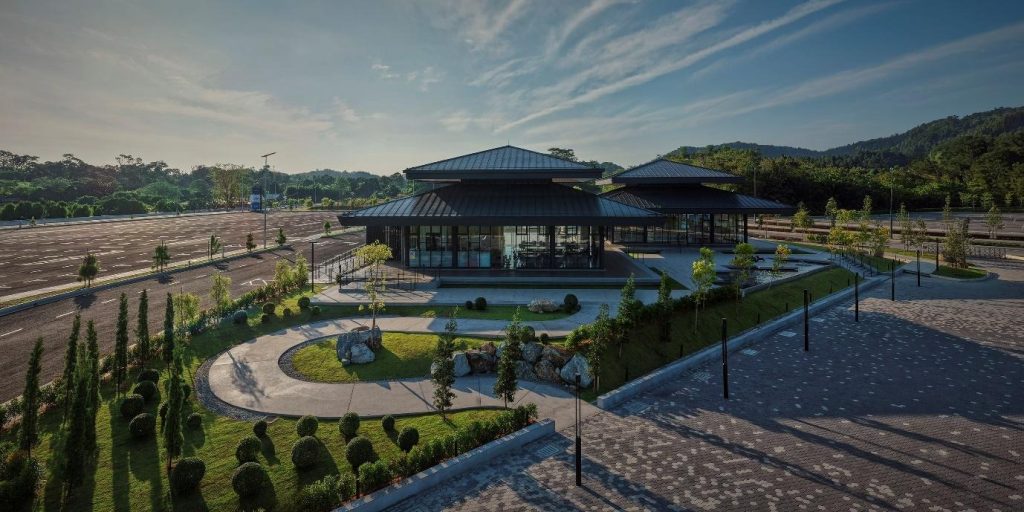Contributed by Chang Kim Loong and YS Ng
The Federal Court has, on Jan 19, 2021, ruled, in no uncertain terms, that only one certification should be used for matters of disputes under the housing legislations vis-à-vis Housing Development (Control & Licensing) Act, 1966 (HDA).
And that certification is the Certificate of Completion and Compliance (CCC) which should be used in a variety of scenarios as illustrated by the two examples below:
Scenario 1
The developer has delivered vacant possession (VP) to Carol and attached a certification from their architect that her condominium was ready for occupation.
On taking possession of her unit, she realised that the common facilities stated in her Sale and Purchase Agreement (SPA) have not been completed. The swimming pool, water features, landscape, gym and the four super-speed passenger lifts were not operational.
Nevertheless, the developer levied maintenance charges and sinking funds for everything. The common facilities were subsequently delivered after six months from the date Carol took physical possession of her unit.
Scenario 2
Abdul Rahim took the keys to his condominium and was a bundle of joy. His joy was short-lived when his neighbours told him that the developer’s architect issued Form F1 (partial CCC) denoting that the development is partially completed.
Upon checking, he discovered that a lot of construction works, as promised have not been fulfilled as required of the housing developer. Although his unit parcel was completed, the temporary hoardings were still erected separating the main blocks from the common properties.
There were frequent construction works with prowling foreign workers at the site. He feared for the safety and hygiene of his family.
The HDA forbids the use of partial CCC in the delivery of VP to buyers. Property owners should take note that the HDA is a statute to provide for the control and licensing of the business of housing development in Peninsular Malaysia. It accords the protection of the interest of purchasers and matters connected therewith. In other words, HDA is a specialised legislation dealing with housing issues under its strict provisions.
The intention and emphasis of HDA are best illustrated in the Federal Court’s judgment in the landmark case known as Ang Ming Lee & Ors vs Menteri Kesejahteraan Bandar & Pengawal Perumahan on Nov 26, 2019.
It was ruled that the housing controller has no power to waive or modify provisions of the contracts of sale as prescribed by regulations 11(1) and (2) of the Housing Development (Control and Licensing) Regulations, 1989 (1989 Regulations).
Her Ladyship Chief Justice Tun Tengku Maimum Tuan Mat had emphasised in no uncertain terms in the judgment that HDA Act 118 is a social legislation intended to protect homebuyers. The interests of the purchasers shall be the paramount consideration against the developer.
This can be inferred from the fact that partial CCC was explicitly precluded from as one of the quintessential VP conditions:
- Sec 3 of the HAD Act 118 inter-alia: “Certificate of Completion and Compliance” means the certificate of completion and compliance given or granted under the Street, Drainage and Building Act, 1974 and any by-laws made under that Act certifying that the housing accommodation has been completed and is safe and fit for occupation but does not include partial certificate of completion and compliance;
- Clause 1 (b) Schedule G; and
- Clause 1 (c) Schedule H, Clause 1(b) Schedule I and Clause 1(c) Schedule J
The exclusion is a testament that the issue of partial CCC had indeed been deliberated, considered and left out in good measure under the HDA legislations.

Partial CCC a bad idea
A partially completed scheme due to phased development is known to have created a litany of problems for the purchasers, owners and occupants, among other things.
First of all, there is a risk of incompletion of the overall neighbourhood for the occupants of the earlier phases – in the event where the developer may abandon the project halfway or unable to continue with the subsequent phases, due to financial burden or winding up.
For example, imagine a podium for a shopping mall with residential towers sitting on top of it. What would happen if the developer abandons the construction of the podium block after the issuance of partial CCC to the purchasers of the residential towers, due to a low take-up rate of the retail outlets?
The purchasers will have to put up with the partially completed structure and worst still, they have to go through the unfinished areas daily if both the podium and towers happen to share a common access.
The abandoned podium will induce breeding grounds for mosquitoes, rats, rodents, insects as well as other undesirable elements.
Not only will it be an eyesore to the neighbourhood, but there will also definitely be a reduction in the value of their property as a direct consequence of such abandonment.
Even if the podium phase is not abandoned, the subsequent ongoing construction activities will create a host of potential security threats, safety and health hazards caused by smog, noise and dust pollution to the purchasers of the earlier phase as well.
Groundbreaking
In the Jan 19 landmark decision in respect of the case of PJD Regency Sdn Bhd vs Tribunal Tuntutan Pembeli Rumah & Ors appeals, the Federal Court clarified the legal position as to when time starts to run, in respect of VP of the property. The Apex Court also distinguished the differences between the Certificate of Practical Completion (CPC) and CCC, and ultimately which should be used.
The CPC is a certification for building works done under a construction contract entered into between the owner/developer and the builder or contractor. Such certification is a private legal obligation between such parties;
Whereas CCC is a statutory requirement as pointed out by Her Ladyship that “is only issued upon the developer complying with all regulatory laws such as the Street, Drainage and Building Act 1974”.
The question posed to the Federal Court panel of five Judges was whether the developer can be deemed to have delivered common facilities to the purchaser upon the issuance of the CPC and not the CCC.
Reverting to the principles of interpretation of social legislation, the Court is required to construe the statutory contract in a manner most favourable to the purchasers. It is clear that the SPA only refers to one type of certification, namely the CCC. This CCC issued by the architect is required for the VP to the purchasers.
Tengku Maimun held the following: “It cannot be the intention of the legislature to refer to one standard in respect of VP and another standard in respect of the completion of common facilities. Furthermore, CCC is a legal requirement imposed by law which will be issued upon the developer complying with all regulatory laws such as the Street, Drainage and Building Act, 1974.
“This affords protection to purchasers who can rest assured that the relevant authorities have approved the construction. The same cannot be said in respect of the CPC or any other such documents not amounting to a CCC.
“For the purposes of ascertaining the date of completion of common facilities under a prescribed statutory contract of sale, the relevant date is the date when the CCC is issued for purposes of VP of the Property.”
Hence, it is clear from the decision that parcels and common facilities ought to be completed and handed over to the buyers simultaneously and not separately.
Completion of the common facilities must be in tandem with the completion of the property itself, as the purposes of the common facilities are for the use and comforts of the purchasers.
This article is jointly written by National House Buyers Association (HBA) honorary secretary-general Datuk Chang Kim Loong (left) and technical advisor YS Ng. HBA is a voluntary non-government and not-for-profit organisation manned wholly by volunteers.
Stay ahead of the crowd and enjoy fresh insights on real estate, property development, and lifestyle trends when you subscribe to our newsletter and follow us on social media.














































